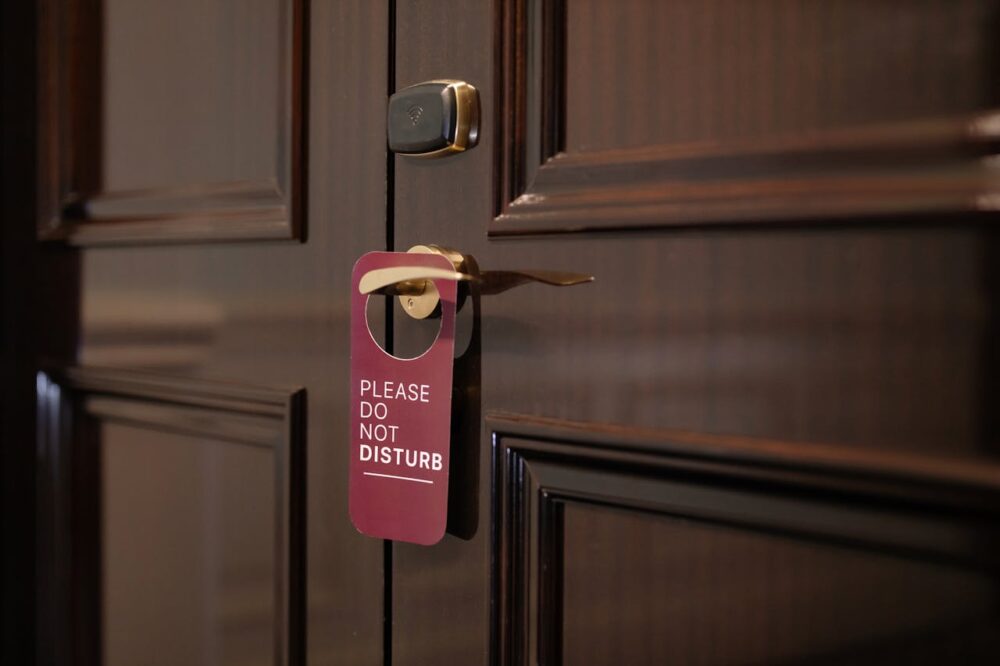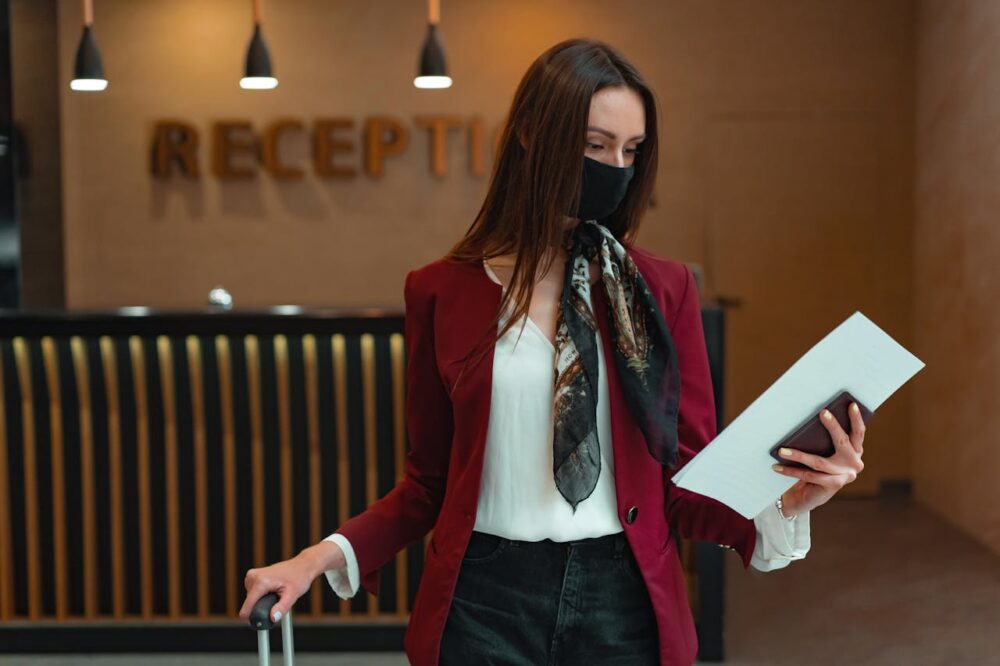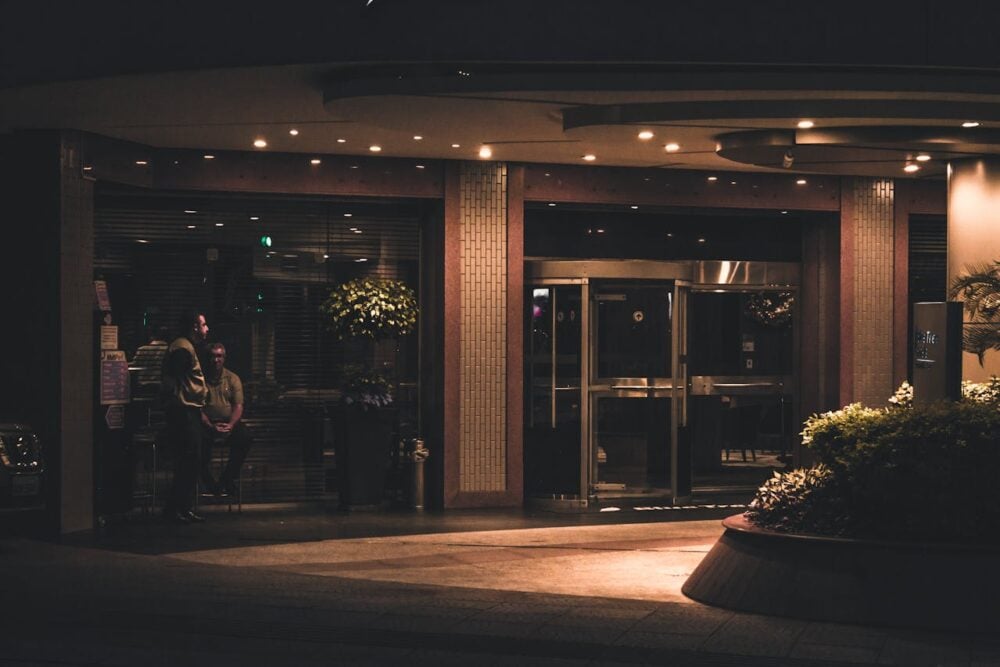Noticeable lobby issues often reflect deeper problems that could spoil your entire hotel experience.

It’s a good idea to check the hotel lobby carefully when you arrive. It can provide early clues about the quality and comfort of your stay. From staff attitudes to cleanliness and noise levels, the lobby sets the tone for guest satisfaction.
Understanding these indicators helps you make informed decisions on whether to continue with the booking or seek alternatives that better meet your needs.
1. Unfriendly Or Unorganized Front Desk Staff Signal Potential Service Issues.

The front desk is where guest service starts, so unfriendly or chaotic staff often predict slow responses and tension during your stay. If agents seem distracted, give wrong information, or handle check-in messily, it usually reflects poor training or low staffing, according to budgettravels.com. These issues can affect room readiness, billing, and requests.
That first interaction matters because it sets expectations for repairs, housekeeping, and problem-solving during your visit. Try asking a straightforward question or requesting an estimate of wait time to judge responsiveness, and use a friendly escalation approach like asking for a manager if needed. If the service feels unreliable, consider another hotel or note it for future bookings.
2. Lingering Unpleasant Odors In The Lobby Could Mean Poor Cleanliness Elsewhere.

A lobby that smells musty, smoky, or like strong chemical cleaners can signal deeper cleanliness problems. Odors often come from dirty carpets, neglected bathrooms, poor ventilation, or ongoing maintenance issues. Guests notice scents before they see dirt, so a persistent odor in the main guest area suggests housekeeping standards might be uneven throughout the property.
Odors affect comfort and can hint at mold or poor ventilation. On arrival, check the lobby restroom and elevator area, as reported by Reader’s Digest. If the smell bothers you ask for another room or an inspection and note the response. For health concerns, consult a qualified professional.
3. Dated Or Damaged Furniture May Reflect Neglect Of Overall Property Maintenance.

When lobby sofas sag, lamps have frayed shades, or tables show scratches, it says something about how the hotel cares for its spaces. Dated or damaged furniture often signals deferred maintenance in rooms, corridors, and amenities. Visible wear can mean less attention to safety checks and timely repairs around the property.
This matters because worn furnishings can create an uncomfortable stay and point to problems you won’t see until later. Walk through the lobby and note stains, loose bolts, or uneven upholstery, then ask to see a sample room or recent photos, as stated by Preno. If staff dismiss concerns, consider booking elsewhere to avoid surprise repair or safety issues.
4. Lack Of Clear Signage Often Leads To Confusion And Frustration During Your Stay.

Clear signs guide guests to check-in, elevators, restrooms, and amenities without guessing. When signage is missing, inconsistent, or small, people waste time and feel frustrated finding basics like the pool or breakfast area. A messy visual layout in the lobby can reflect sloppy planning that affects the entire guest experience.
This matters because you want to move through the hotel easily and avoid delays at check-in or when returning late. Scan the lobby for directory boards and posted hours, and ask staff to point out emergency exits and amenities. Rule of thumb: if you can’t spot simple signs in the first five minutes, ask questions or reconsider the choice.
5. Overcrowded Lobby Areas Can Indicate Poor Space Management And Guest Comfort.

A lobby packed with guests, luggage, and long check-in lines tells you the hotel struggles with space management. Overcrowding creates noise, blocks walkways, and makes it harder to get concierge help. It can also slow down services like bell service and housekeeping when staff are overwhelmed by too many guests all at once.
Crowded lobbies lower comfort and raise noise that can affect nearby rooms. Ask staff about peak check-in times and whether quieter floors exist. Watch how long queues take and plan arrival for off-peak hours. Tip: If the crowd never thins, consider requesting a room away from elevators or a different hotel. For safety, be aware of exits.
6. Absence Of Helpful Staff Ready To Assist Might Mean Low Customer Service Standards.

When no staff greet you or the concierge desk stands empty, the lobby feels unattended. Lack of readily available employees can lead to slow check-ins, missed requests, and a sense that guest service falls low on priorities. This absence often signals understaffing, poor training, or cost cutting that affects the whole stay.
Good service matters because staff make small problems disappear and improve safety. Test responsiveness with a simple question at the desk or by pressing any service bell, and note how long it takes for someone to help. If no one shows, ask to speak with management or consider switching hotels. For personal safety, ask about emergency procedures.
7. Inadequate Lighting In The Lobby Could Point To Safety Or Aesthetic Problems.

Dim or flickering lights make a lobby feel gloomy and can hide hazards like uneven steps or spills. Poor lighting might mean the hotel neglects routine upkeep or overlooks safety checks for cameras and emergency signage. A lobby with inconsistent illumination can signal similar weaknesses in hallways and parking areas.
This matters because bad lighting affects comfort, safety, and how secure you feel late at night. Look for dark corners, stairwells, and parking access when you arrive. If bulbs are out, ask staff to fix them and request a well-lit room route. For serious safety concerns, report issues to management and consider moving to another hotel.
8. Smudged Windows And Poor Lobby Presentation Suggest Neglected Hotel Upkeep.

Smudged windows, dusty surfaces, and wilted plants are small signs that add up to a poor lobby presentation. When decorative details look ignored, the hotel may be skimping on cleaning schedules and routine upkeep. These visual cues often reflect how the property treats public spaces and guest areas beyond the lobby.
First impressions matter because visible neglect hints at bigger problems with housekeeping and maintenance. Scan the lobby surfaces and window glass, and peek into accessible public restrooms. If you see persistent dirt or staff indifference, politely report it and ask what steps they’ll take. Use your observations alongside reviews when choosing a hotel. For health concerns, consult a qualified professional.
